Tech
-
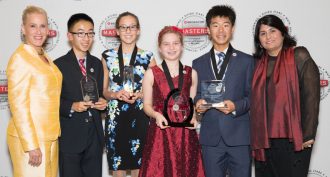 Environment
EnvironmentRocket nozzle research propels teen to big win
A 13-year old won the top prize at this year’s Broadcom MASTERS science competition. She had determined the best shape for a rocket nozzle.
By Sid Perkins -
 Science & Society
Science & SocietyHow computers get out the vote
Increasingly computers play a role in voting. Here’s why that concerns scientists, even as they acknowledge that computers may be increasingly essential.
-
 Chemistry
ChemistryNew coating for metals could cut engine wear
Scientists have developed a new coating for engine parts that could reduce friction and engine wear. One big benefit: Cars may require fewer oil changes.
By Sid Perkins -
 Brain
BrainCool Jobs: Video game creators
Meet an engineer who worked on StarCraft II, an expert building a new kind of reality and a neuroscientist who uses games as brain therapy.
-
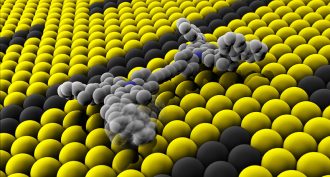 Chemistry
ChemistryChemistry Nobel honors pioneers of world’s smallest machines
Three chemists are being honored with a Nobel Prize for their pioneering work creating itty bitty machines, including a microscopic ‘nanocar.’
By Tina Hesman Saey and Thomas Sumner -
 Tech
TechHot, hot, hot? New fabric could help you stay cool
A plastic fabric can let body heat escape efficiently, if the material is filled with tiny bubbles of just the right size
By Sid Perkins -
 Tech
TechOne day, computers may decode your dreams
Scientists are learning how to translate brain activity into words and thoughts. This may one day allow people to control devices with their minds.
-
 Brain
BrainExplainer: How to read brain activity
Electricity underlies the chattering of brain cells. Here’s how scientists eavesdrop on those conversations.
-
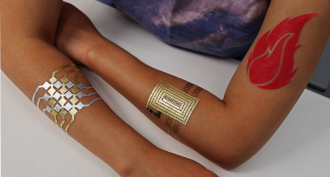 Computing
ComputingSelf-designed tattoos are fashionable technology
Researchers have created do-it-yourself temporary tattoos. They’re a fashion-forward way to control electronic devices.
-
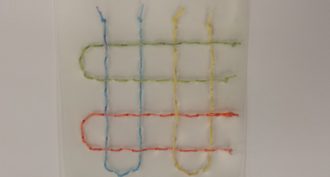 Tech
Tech‘Smart’ sutures monitor healing
Coatings added to the threads used to stitch up a wound let researchers use electrical signals to monitor a wound’s healing — even one covered by a bandage.
By Sid Perkins -
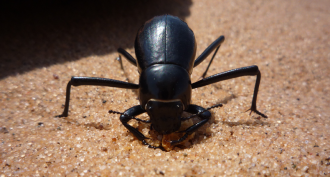 Materials Science
Materials ScienceBeetles offer people lessons in moisture control
Taking tricks from a beetle, researchers are designing surfaces that collect water from the air or resist frost buildup.
By Sid Perkins -
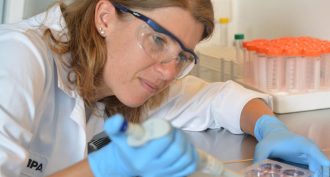 Materials Science
Materials ScienceNano medicines take aim at big diseases
Nanomedicines are new treatments and tools that are taking aim at disease from the cellular level. Medicine’s next big thing could be very teeny tiny.